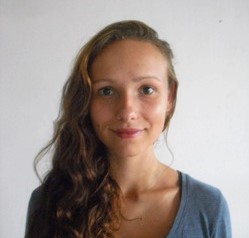Workshop on Socio-Technical Integration Research
Organized by Mareike Smolka, Maastricht University
Info about event
Time
Location
IMC Meeting Room, Jens Chr. Skous Vej 4, Building 1483-312
Organizer

This is a hands-on workshop that offers a practical tool for interdisciplinary collaboration on social and ethical aspects of science and technology development.
Socio-Technical Integration Research (STIR) is a method that enables scientists and engineers to incorporate perspectives from the social sciences and humanities while going about their normal work. It pursues a twofold agenda: one is to build capacities for systematically taking into account the uncertain yet pressing social and ethical aspects of science and technology under development, the other is to document and assess the practical value of that capacity-building. For this purpose, STIR works with a decision protocol that functions as an interface for collaborators across disciplines to dialogue about the variety of ethical, social, material, juridical, scientific, environmental and other considerations which play a role in developing alternatives to react to a problem, opportunity, or challenge in daily routine.
To date, STIR has been used in over 50 university and private sector laboratories across more than a dozen nations on three continents. Lately, it has moved beyond the laboratory to urban planning offices, design tables, business consultancy, and university classrooms. Training future professionals in decision-making that integrates socio-ethical concerns with technical alternatives has been put on the agenda of university education, especially in interdisciplinary study programs.
The workshop will be led by Visiting PhD student Mareike Smolka, from the Science & Technology Studies research group (MUSTS) at University Maastricht, Netherlands. She has worked with STIR in contemplative science and has taught the method at University College Maastricht to support interdisciplinary collaboration among students. She has been trained by Prof. Erik Fisher from Arizona State University who developed STIR and applied it in nanotechnology and biotechnology. For more information on STIR, have a look at the ASU Center for Nanotechnology in Society website.
Programme (approximate times):
11:00-11:30 Presentation on the background of STIR, study design, decision protocol
11:30-12:15 STIR Exercise 1
12:15-12:40 STIR Exercise 2
12:40-13:00 Presentation on the analysis of STIR data, results and innovations of the method
About the speaker:
Mareike Smolka is a visiting PhD student at IMC in August - read more here.
